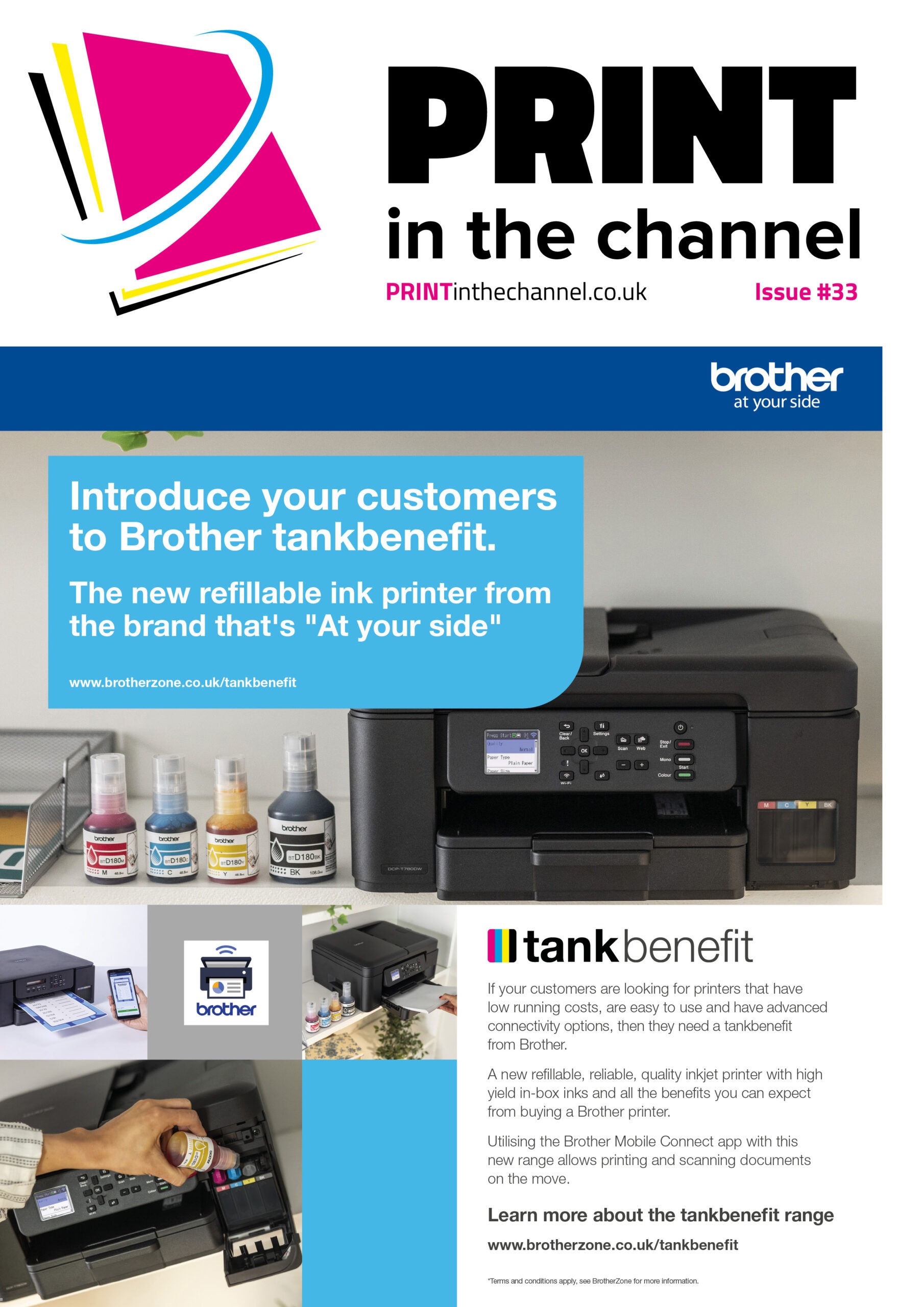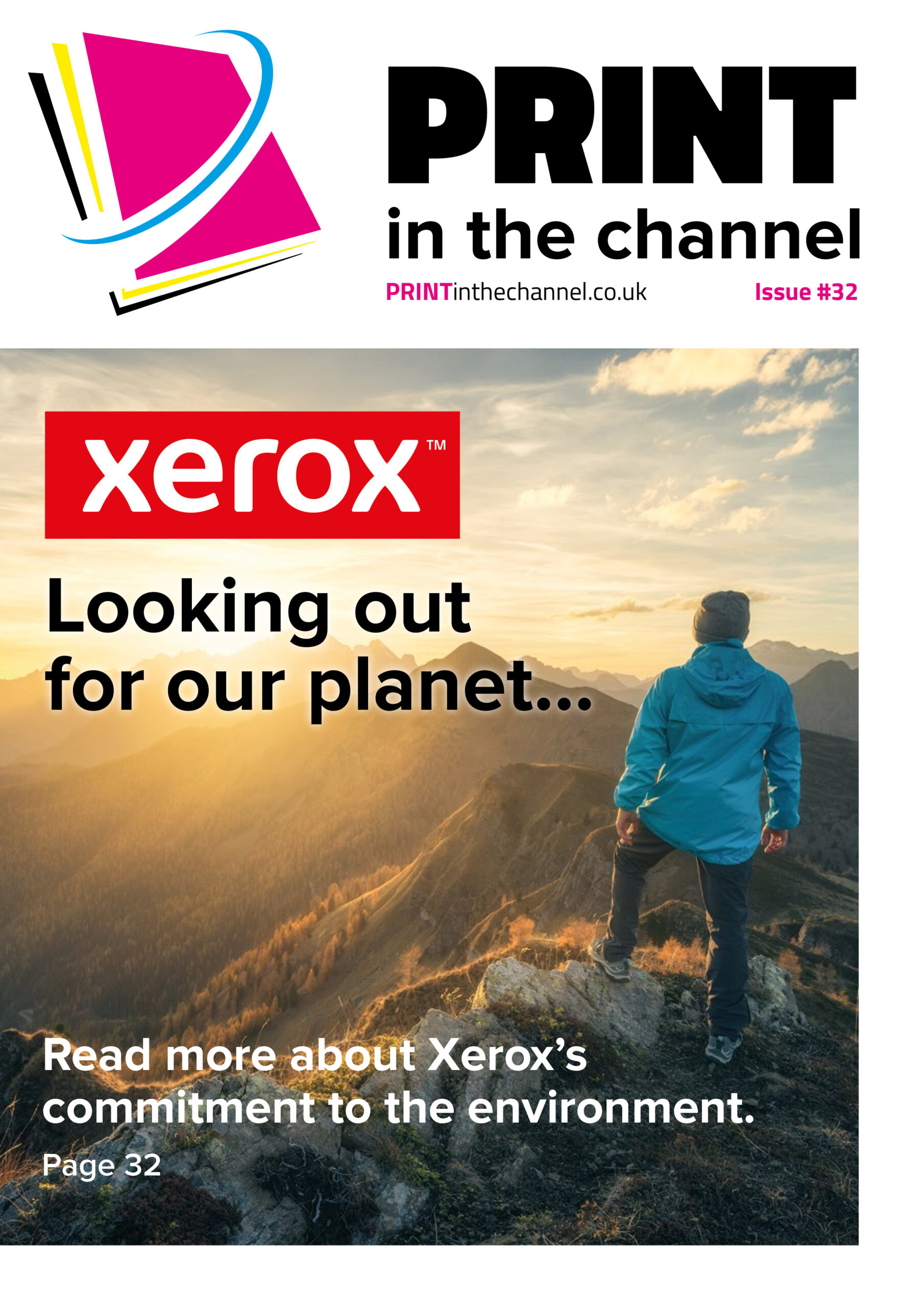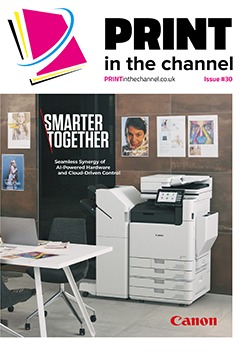Many businesses are increasingly focused on achieving ESGs goals and looking to recycle more products, such as printer toner cartridges. There are increasing numbers of ways this can be done, and resellers can play an important role in this.
With sustainability continuing to ascend the agenda for many businesses, how office products are recycled has become more important – including printer toner cartridges.
As Christian Redder, Xerox Global Supplies marketing manager, notes, ensuring that used toner cartridges are recycled properly – rather than being disposed of in landfill – has become increasingly important. “These cartridges contain plastics and residual chemicals that require specialised processing to prevent environmental harm,” he says. “By recycling them, we not only avoid unnecessary waste but also contribute to a more circular economy.
“Recycling also plays a vital role in enabling remanufacturing. Many toner cartridges can be refurbished and reused multiple times before reaching the end of their lifecycle. This approach conserves raw materials, reduces energy consumption, and supports the development of sustainable supply chains.”
Demand is growing for such services. For instance, in the UK Kyocera has seen toner cartridge recycling rates grow by 33% in the year ending March 2025, according to Matt Hayman, head of governance and standards at Kyocera Document Solutions UK. “Highlighting green business is now firmly on the agenda,” he adds
Ben Mills, people and culture, environment manager at Konica Minolta Business Solutions (UK) Ltd, adds that the company is seeing growing demand from customers for environmentally responsible solutions. “Toner cartridge recycling is a tangible way to demonstrate sustainability in everyday operations,” he says.
“Customers require simple and effective ways to manage the recycling of toner cartridges, and recycling is often a key factor in procurement decisions, particularly for organisations working toward ISO 14001 or other environmental certifications.”
Making an impact
Christian says toner cartridge recycling can make a surprisingly big impact on a company’s ESG goals. “Especially when it’s done through a controlled, closed-loop program,” he adds. “A lot of businesses rely on local recycling, but the truth is, once those supplies leave your hands, you don’t really know where they end up. That’s why programs like Xerox’s Supplies Recycling Program are so important. We manage the entire process, so that used supplies returned are diverted from landfills and put to better use.”
Ben adds partnering with responsible suppliers like Konica Minolta for toner cartridge recycling “demonstrates a company’s ethical stance and supports wider community recycling initiatives.
“From a governance standpoint, proper tracking and reporting of recycling efforts contributes to transparency and accountability in ESG reporting,” he adds. “Toner cartridge recycling can be a small action with significant long-term benefits.”
Matt adds that both Kyocera’s carbon neutral and toner take back programmes are popular as they provide certified ‘paperwork’ that demonstrates their investment in climate protection and support of ESG goals.
“For example, our carbon neutral programme certifies the lifetime offset of the production and transportation of our printers and MFPs, including all the genuine toners they use,” he adds. “The tCO2e offset is certified through our partnership with myclimate and presented to our customers for them to share with their stakeholders. On top of this our UK ‘Toner Take Back’ and device recycling services complete the loop and support circular economy initiatives, with customers able to download Waste Transfer Notes in compliance with UK WEEE legislation for responsible disposal.”
Getting involved
With the increase in demand from customers for toner cartridge recycling, this is something that resellers should be looking to get involved with – and there is support from OEMs. For instance, Matt says Kyocera offers recycling of its genuine OEM toner cartridges free of charge. “This means our dealers and their customers know that choosing Kyocera can form an important part of their ESG strategies, at no additional cost, safe in the knowledge that none of their used toner cartridges will end up in landfill,” he says.
“As MPS providers, dealers can get involved by recommending brands with robust recycling schemes and encouraging their customers to responsibly recycle.”
Ben adds that resellers/MPS providers can easily integrate toner cartridge recycling into their offerings by utilising OEM recycling programmes. “Konica Minolta UK offers a recycling scheme, called ‘A World on Loan’ which partners can use to help customers dispose of used cartridges in an environmentally friendly way,” he adds. “By using such schemes, reseller/MPS providers not only add value but also support their customers’ sustainability goals.”
Christan adds that Xerox offers multiple no-cost recycling options. “The most popular of which is the Xerox Eco Box programme,” he explains. “Customers can order two Eco Boxes – delivered at no charge – that each accommodate up to 22.7kg of used Xerox consumables, depending on cartridge size. The boxes come pre-labelled with return shipping information, and once full, need only be sealed and handed off to the courier for return to Xerox.
“By highlighting these programmes and offering hands-on assistance where needed, resellers and MPS providers can position themselves as sustainability-minded partners while helping customers meet their recycling and environmental goals.”
Heidi Boller, general manager, EMEA at Katun, says resellers and MPS providers can offer simple, convenient return and collection programs. “Partnering with certified recycling organisations ensures compliance and reliability, while educating customers on the environmental benefits adds real value,” she says. “Integrating recycling into service agreements strengthens long-term relationships and highlights a commitment to sustainability.”
Gary Organ, head of device technology UK at Fujifilm, says Fujifilm partners can access a comprehensive programme that covers toner, spare parts, and waste toner collection and recycling. “This closed-loop initiative involves genuine toner replenishment using recycled parts and materials from our Circular Manufacturing Centre in Tilburg,” he says.
Positive case studies
When talking to customers, resellers should highlight a range of benefits of toner cartridge recycling. “Resellers should look for vendors with a positive story to tell, look at how they are incrementally moving the dial to encourage more recycling or how they are supporting the circular economy,” says Matt.
“For example, in the year ending March 2025, Kyocera’s UK toner cartridge recycling programme prevented 46 tonnes of plastic waste entering landfill or combustion, saving nearly 60 tonnes of carbon emissions that would otherwise negatively impact the environment.
“Another area to look at is where that recycling happens, is it relatively local or are they shipping to big continental plants. For instance, two years ago we switched our toner recycling to a UK provider, removing the carbon emissions associated with shipping empties to Germany for processing, which equated to more than 125 gallons of diesel per year.”
Gary adds that resellers should stress the importance of responsible recycling, proper certification and transparency about where recycled materials end up. “Highlighting how manufacturers simplify recycling for customers and ensuring genuine circular reuse of returned items are key selling points,” he says.
Heidi says it is important to focus on performance and sustainability. “Highlight key benefits like print quality, reliability, and cost-effectiveness, but also emphasise eco-friendly features such as recyclable cartridges, remanufactured options and responsible end-of-life programs,” she says.
“Today’s customers are increasingly value-driven, so showing how your toner solutions reduce environmental impact builds trust and loyalty. It’s also worth highlighting sustainable manufacturing choices, like Katun’s decision to use over 90% recycled plastics in all newly introduced waste toner containers since February 2023. This kind of initiative demonstrates a genuine commitment to ‘circular economy’ practices and long-term environmental responsibility.”
Heidi adds that implementing an effective recycling program isn’t without challenges. “Collecting empty cartridges for remanufacturing depends heavily on cooperation from dealers and end users, and the market is still flooded with non-compliant new-build products, adding cost and complexity,” she says. “Raising awareness about sustainable choices, like recycled plastics in toners is essential.”
Growing popularity
It is expected that demand for toner cartridge recycling will continue to grow. “The focus on sustainability is only increasing, and toner recycling will continue to grow in demand and innovation,” says Ben. “At Konica Minolta, we anticipate advancements in closed-loop recycling, see smarter logistics, and more eco-conscious materials used in cartridge production.”
Gary says that demand will increase significantly due to new regulatory requirements on waste management. “Fujifilm is already ahead of the curve with our recycling programmes and will continue innovating to maintain our leadership in supporting our partners and customers,” he says.
Heidi says that in the next 12–24 months, we can expect innovations like smarter collection systems, improved remanufacturing, and deeper integration with MPS. “As ESG goals and regulations evolve, demand for responsible solutions will grow,” she says.
Christian notes that younger generations are now stepping into procurement and decision-making roles, which is having an effect. “They bring with them a heightened focus on environmental impacts,” he says. “These individuals are more likely to prioritise sustainability when selecting vendors and solutions, and they are actively seeking out partners who offer meaningful, actionable ways to reduce waste.
“We believe that cartridge recycling will evolve from a ‘nice-to-have’ to a core component of every print solution. The path forward is clear: more sustainable practices must be embedded into the everyday operations of our industry.”









